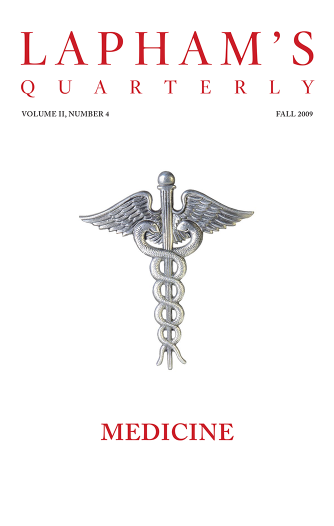
Galen
(129 - c. 216)
The writings of Galen dominated medical thought in Europe and the Middle East from the Middle Ages well into the seventeenth century. The author of an estimated three hundred books, he was also physician to multiple Roman emperors, including Marcus Aurelius and Septimius Severus. Galen believed that anatomy was the basis of medicine, and his dissections of apes, pigs, and sheep led him to refute the four-hundred-year-old belief that arteries carried air, not blood. Ascribing to the Hippocratic belief in the body’s necessity to balance the four humors—blood, yellow bile, black bile, and phlegm—he added that imbalances can be detected in specific organs, allowing for greater diagnostic and prescriptive precision.


